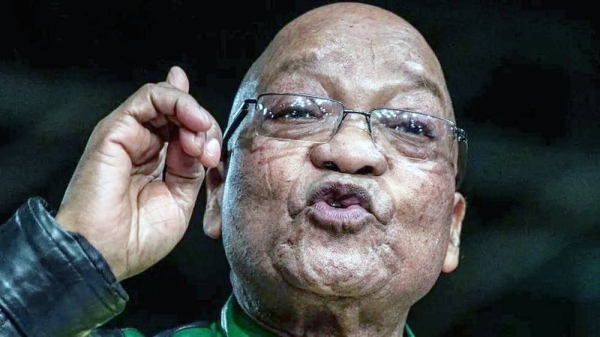
The African National Congress’s (ANC) three decades of political dominance in South Africa has come to an end after it was announced that it had won just 40.2% of the vote in last week’s general election.
The ANC’s dramatic decline – the first time it has failed to win a majority of the votes since Nelson Mandela led it to victory in the first democratic election in 1994 – will lead to a chaotic round of coalition negotiations, with all of its potential partners posing difficulties.
With ballots from more than 99% of voting stations counted on Saturday afternoon, the ANC had 40% of the vote – a collapse of more than 17 percentage points from the 2019 national elections. The pro-business Democratic Alliance (DA) was on 21.7%, while uMkhonto weSizwe (MK), launched only in December by the country’s former president Jacob Zuma, surprised with 14.6%.
The constitution says the new parliament must sit within 14 days of results being declared and elect a new president at that sitting.
Chronically high unemployment, power cuts, violent crime and degraded infrastructure have contributed to a grim national mood in the country, with many voters seeking to punish the party that Nelson Mandela led to power in 1994 at the end of apartheid.
Julius Malema, a former ANC youth leader, said his far-left Economic Freedom Fighters party, which was on 9.5% of the vote, would be talking to all parties about forming a coalition. The party’s demands include expropriating land without compensation, he told a press conference at the election results centre.
Leaders of the MK, which also supports seizing land, have said they will not work with the ANC while it is led by current president, Cyril Ramaphosa. Zuma, who led South Africa from 2009 to 2018, has feuded bitterly with his successor after he was forced to resign as president.
Malema said this was not an issue for the EFF. “Ramaphosa is not our preferred cup of tea,” he said. “But he can’t be a dealbreaker.”
Malema had warm words, though, for the MK, which he said had taken back pro-Zuma votes that the EFF “borrowed” in 2019, when it secured 10.8% of the vote. “We are relatives,” he said.
ANC officials at the results centre said Ramaphosa’s future was not being discussed. “Nobody has raised it in the ANC except journalists,” Gwede Mantashe, the party’s chairman, said.
The minimum wage was among the ruling party’s non-negotiable policies in coalition discussions, he said.
“We are talking to everyone. We are just chatting,” said the ANC’s first deputy secretary general, Nomvula Mokonyane, after she crossed to the other side of the results centre to speak to EFF officials.
ANC leadership would determine the party’s red lines for coalition negotiations “at an appropriate time”, she said, declining to say when.
The DA was looking at a range of options, including a “full-blown coalition”, a deal that involves provincial and city governments, a “confidence and supply” arrangement with an ANC minority government and staying in opposition, said Helen Zille, the chair of the DA’s federal council.
First, she said, the DA would meet other members of the Multi-Party Charter, an alliance with 10 other smaller parties that failed to secure a majority, on Thursday evening. “We’re not in the business of ditching our allies when it suits us, so we will want to take them along into whatever we’re going to go in,” she said.
The Inkatha Freedom party, which has 3.9% of the counted votes and, like the MK, gets most of its support from Zulu people, has been floated by analysts as a possible coalition partner to get the ANC and EFF above a majority or to help fend off criticism of an ANC-DA deal. Many black South Africans see the DA as favouring the interests of white people, although Zille repeated that the party was “multi-racial”.
A spokesperson for the Electoral Commission said final results would be announced on Sunday evening, after challenges to the results had been dealt with.












